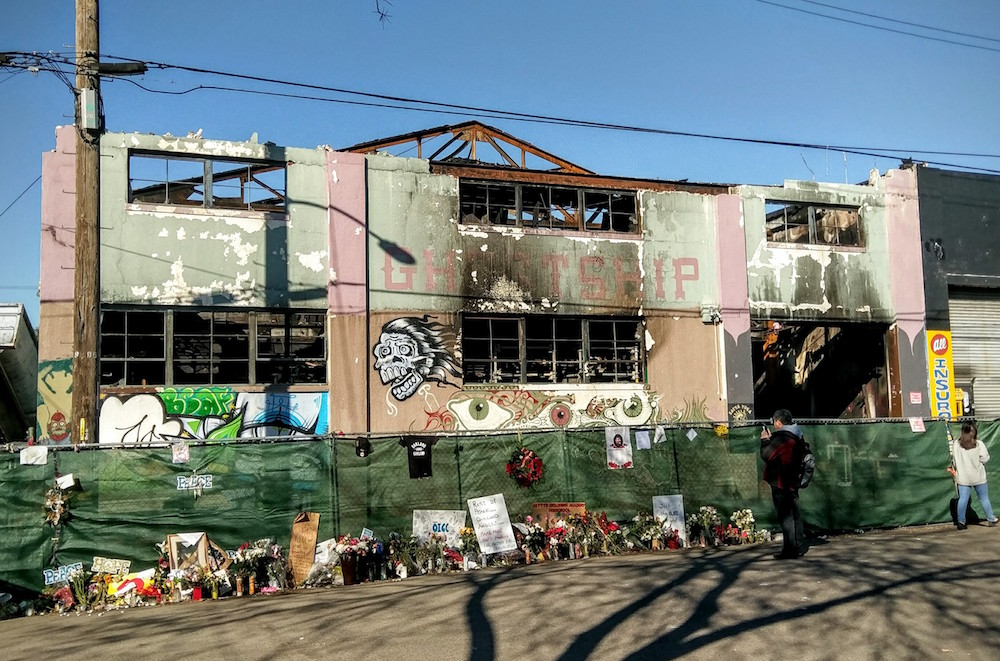An Alameda County prosecutor got Ghost Ship warehouse creative director Max Harris to admit on Tuesday that he lied to a police officer and misrepresented his position at the 10,000-square-foot building in Oakland where 36 people were killed in a fire in 2016.
In his second day on the witness stand in his trial on 36 counts of involuntary manslaughter for the blaze at a music party at the warehouse in the 1300 block of 31st Avenue on the night of Dec. 2, 2016, Harris at first said he was merely being evasive in his comments to Oakland police Officer Brian Kline several months before the fire. But after Alameda County prosecutor Autrey James showed jurors, for the second time in the trial, footage from Kline’s body camera video of their conversation and asked Harris if his comments were a lie, Harris said, “If that’s how you want to look at it, sure.”
Harris, 29, said he was being evasive with Kline because he feared that if he told the officer that people were living at the warehouse that he and the others would be evicted. Later in the day, Harris admitted under cross-examination by James that he sometimes exaggerated his role at the warehouse, which also was known as the Satya Yuga artists’ collective, so that he would sound more important.
Prosecutors allege that Harris and Ghost Ship master tenant Derick Almena, 49, who faces the same charges, are criminally responsible for the fire because the people at the party didn’t have the time or opportunity to escape the blaze since the warehouse didn’t have important safeguards, such as fire sprinklers, smoke alarms and lighted exit signs. Prosecutors also allege that Almena and Harris violated the terms of the warehouse’s lease by turning it into a living space for up to 25 people and hosting underground music parties there.
But defense attorneys allege that the fire was an act of arson that the two defendants couldn’t have prevented. Harris has spent much of his two days on the witness stand trying to minimize his role in running the warehouse and organizing the party at which the fire occurred. “There was not an executive director, there was not a creative director, it was just an empty title,” he said.
But Harris admitted to James that when he sent an email in 2016 to the director of the Symbiosis Gathering arts and music festival, an event that warehouse residents worked on, that he identified himself as the executive director of Satya Yuga but said he did that “so they would take me more seriously” and “it sounded like a really formal thing.” When James asked Harris if he “felt the need to misrepresent yourself” and made an “untrue” statement, Harris said, “Yes, it was a misrepresentation.”
Harris also admitted that in email to the warehouse’s landlords when about the warehouse’s rent payment being late he also identified himself as the building’s executive director. Harris said, “I wanted to sound officious or important or explain why I was writing to them. I wanted to be taken seriously.”
Asked by James if he made an untrue statement to the landlords, Harris said, “It was a misrepresentation and it was untrue.”
